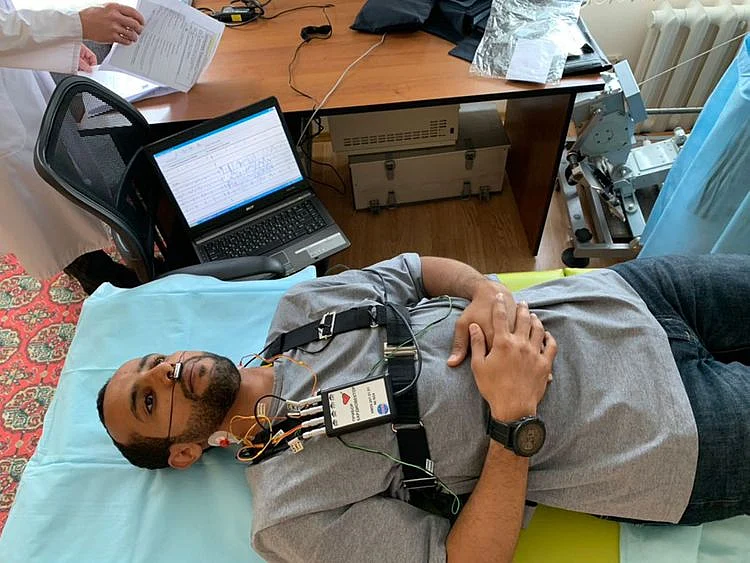Dubai: All pre-spaceflight medical experiments were completed just a month before the first Emirati astronaut Hazza Al Mansoori launches to the International Space Station (ISS) on September 25, he said on Sunday.
Hazza will be travelling to the ISS for an eight-day space expedition as part of the UAE’s Astronaut Programme. A series of experiments will be conducted on him to check how his body will react to zero-gravity and compared with results after the trip when he returns to Earth on October 4.
Officials from the Mohammed Bin Rashid Space Centre (MBRSC) had earlier said that this is the first time such experiments will be done on an Arab.
In a tweet on Sunday, Hazza shared a video and photos of the medical tests he had to go through.
“L-31 (31 days before launch), getting closer to the launch day,” Hazza, 35, said in the tweet.
“We finished the last sessions of the medical experiments in which samples are taken before and after mission for comparison. The experiments were focused on: balance, motor control, cardio vector, and bone density,” he said.
The eight-second video showed Hazza’s breathing, heart rate and rhythm being monitored as he sat still with doctors standing behind him.
Experiencing microgravity may be exciting but prolonged stay in space can drastically affect the human body.
Space flight’s effect on human body
Staying in a weightless environment for a long period could lead to loss of muscle mass and a change of muscle performance, a decrease in bone density and strength, increased kidney stones and bone fractures, among others, according to Nasa.
Body fluids are also affected and since there’s no gravity pulling the body down, these fluids can redistributed away from the extremities.
Aside from the normal muscles in the body, the most at risk is the human heart which is also a muscle. Some effects have been “diminished cardiac function” and heart rhythm disturbances.
Although Hazza’s space mission is not as long as the others astronauts, short-term exposure to microgravity does have impact on the body. Several studies have shown that it did affect some astronauts’ vision after being exposed to microgravity on a time scale of a “few days”.
As part of the mission, Hazza will also conduct experiments in space in partnership with various universities in the UAE.
Officials earlier said the results of the experiments will be shared with the international community.
On August 30, Hazza and his crewmates, Nasa astronaut Jessica Meir and Russian Commander Oleg Skripochka will undergo their final exam to test their spaceflight readiness as a team.
They will be launched to the ISS onboard a Soyuz M-15 rocket from Baikonur Cosmodrome in Kazakhstan.
Sign up for the Daily Briefing
Get the latest news and updates straight to your inbox
Network Links
GN StoreDownload our app
© Al Nisr Publishing LLC 2026. All rights reserved.
